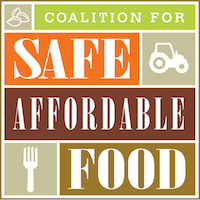 The Senate Agriculture Committee held a hearing this week that showcased the overwhelming scientific consensus regarding GMO safety, as well as the urgent need for Congressional action to pass a reasonable, common-sense solution that prevents a state-by-state patchwork of labeling laws.
The Senate Agriculture Committee held a hearing this week that showcased the overwhelming scientific consensus regarding GMO safety, as well as the urgent need for Congressional action to pass a reasonable, common-sense solution that prevents a state-by-state patchwork of labeling laws.
“Today’s hearing confirmed that GMOs are safe; a state-by-state patchwork of labeling laws will have dire consequences for farmers, businesses and consumers; and the urgency for Congress to prevent these problems by passing a uniform national law,” said Coalition or Safe Affordable Food (CFSAF) spokesperson Claire Parker.
Senators from both parties spoke to the importance and safety of biotechnology and the need for a single national food labeling standard. Chairman Pat Roberts (R-KS) began the hearing by stating that “agriculture biotechnology has become a valuable tool in ensuring the success of the American farmer in meeting the challenge of increasing yield in a more efficient, safe, and responsible manner.”
Ranking Member Debbie Stabenow (D-MI) said, “I share the concern of doing business if 50 different states have 50 different standards and quite frankly, it wont work.” Senator Stabenow also said she hopes the Senate can “work together to develop a bipartisan bill that can pass the Senate by the end of this year.”
Wednesday’s hearing began with a panel of experts from the U.S. Department of Agriculture, Environmental Protection Agency, and the Food and Drug Administration offering testimony that reaffirmed the safety of GMOs.
Following three hearings in the U.S. House of Representatives, this is the fourth time in the past 12 months where expert witnesses have confirmed the science and safety of biotechnology.
The Senate hearing comes less than ten months from the July 1 effective date of Vermont’s labeling mandate, which will be the first state to implement its own unique food labeling standard. Though Vermont’s law is currently being challenged in federal court, there is little chance of a judicial resolution in time to prevent the negative impacts of the misguided statute.
It it increasingly clear that a bipartisan solution is attainable. In July, the House of Representatives passed its own bill that creates a single, national labeling standard, as well as a GMO-free certification program that assures consumers who prefer to purchase non-GMO foods have a consistent, transparent means of identifying those products. That legislation passed by a 275-150 vote with support of 45 Democrats. The hearing provided plenty of evidence that similar bipartisan compromise is within reach in the Senate.
